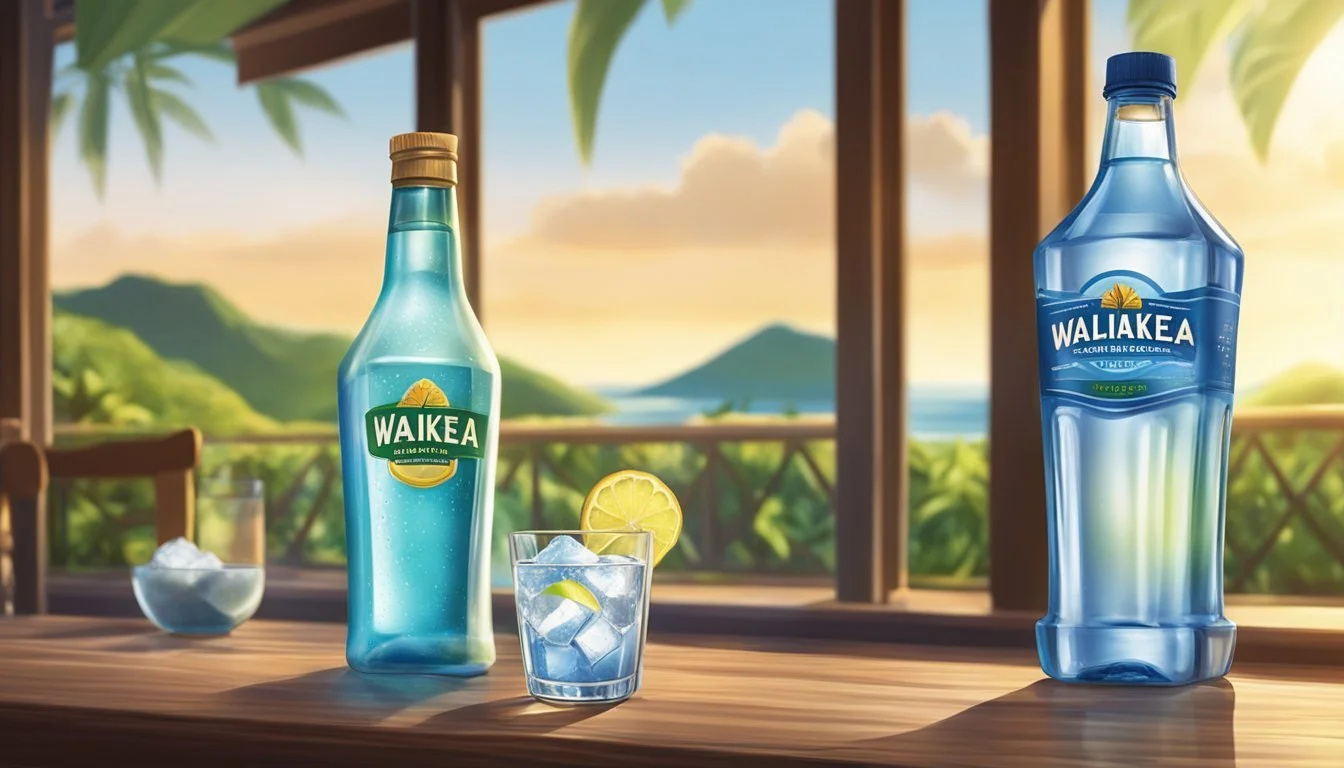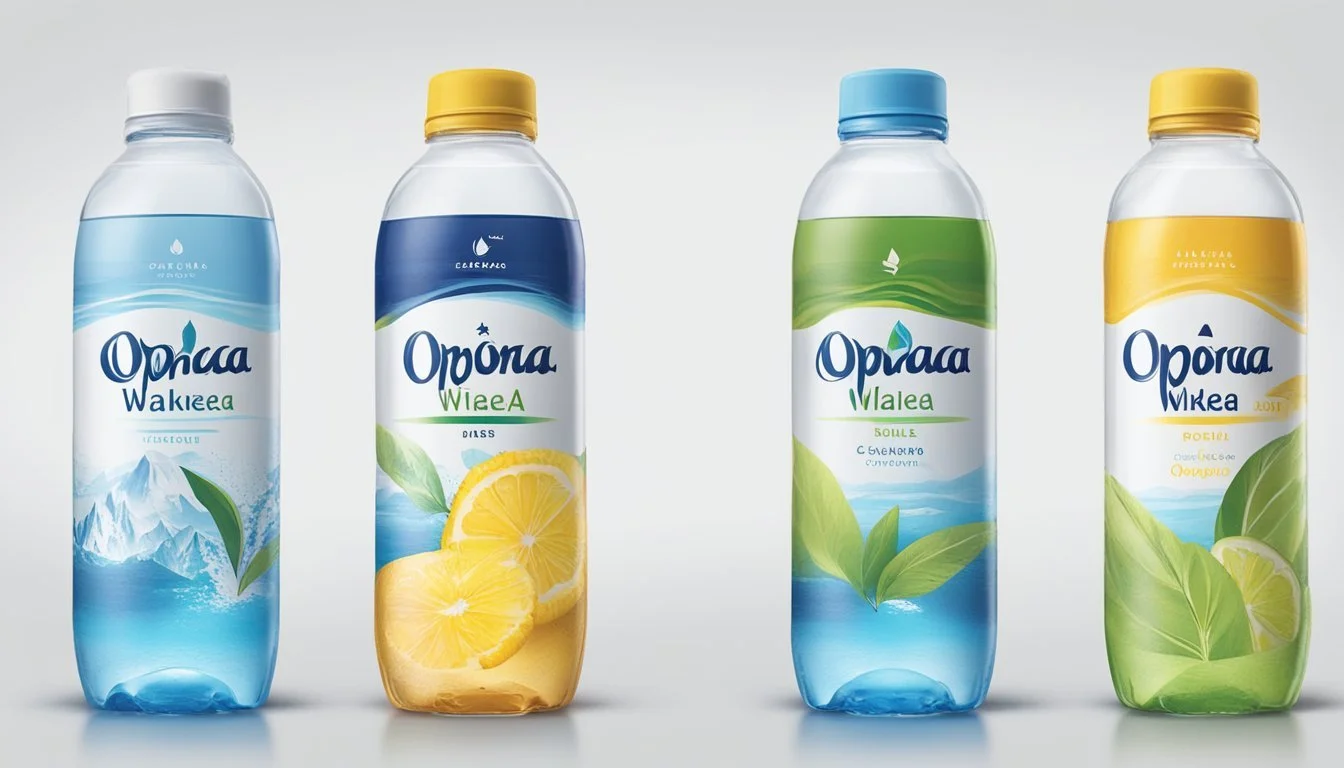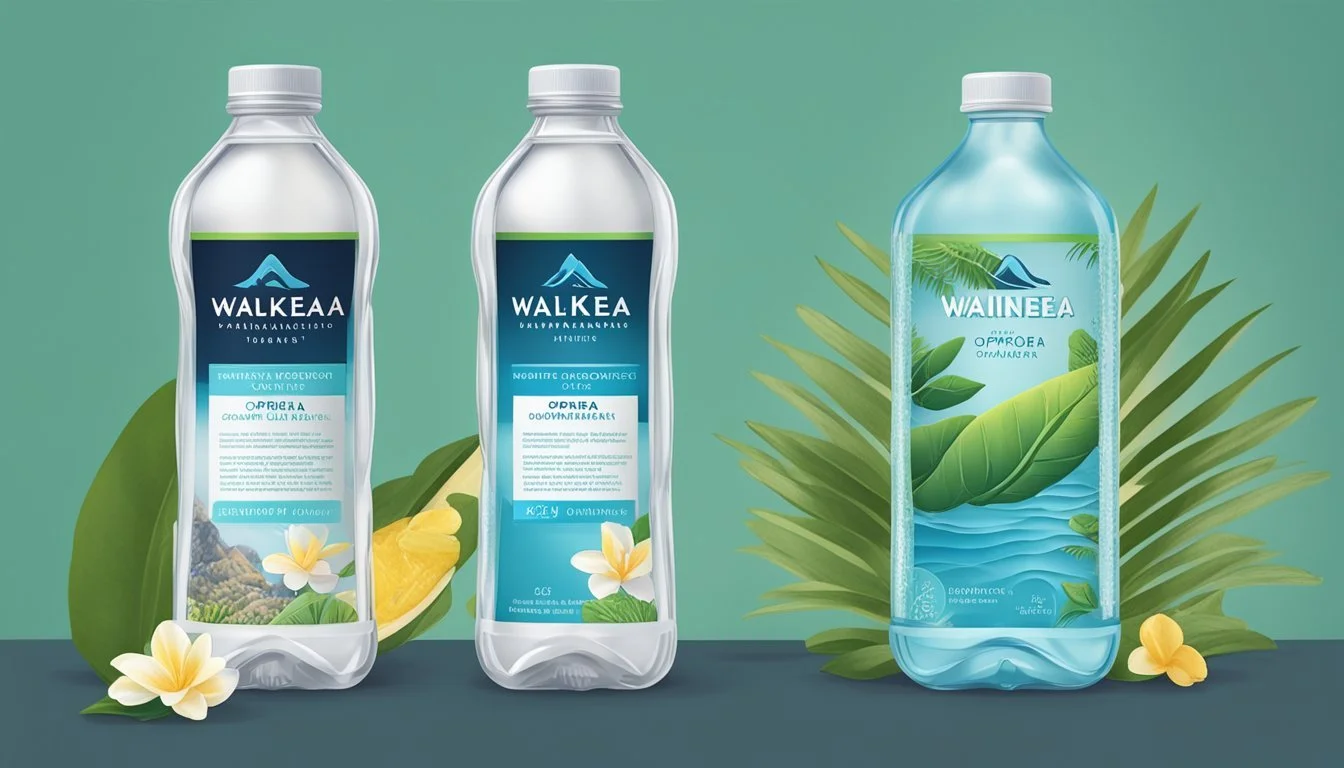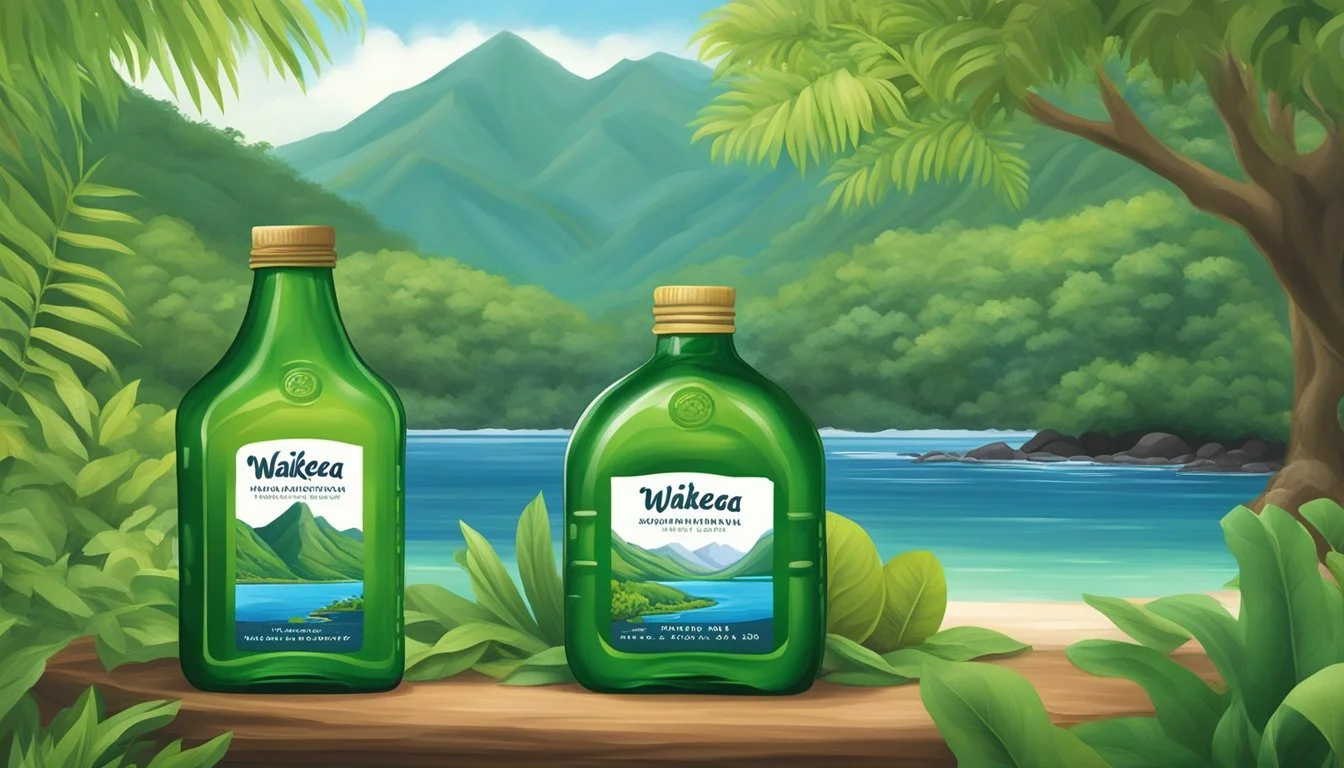Waiakea vs. Ophora
Comparing Premium Bottled Waters
Choosing between Waiakea and Ophora bottled water can feel like a daunting task given the variety of options on the market. Waiakea is renowned for its naturally alkaline water sourced from Hawaii's Mauna Loa volcano, providing a smooth and refreshing taste. On the other hand, Ophora focuses on offering water that is oxygen-rich and meticulously purified, targeting those who seek enhanced hydration benefits.
Waiakea's water boasts a pH level of around 8.2, making it an excellent choice for those looking to maintain a balanced pH in their body. For consumers prioritizing purity and oxygen-enrichment, Ophora's water emerges as the superior option due to its advanced filtration and oxygenation processes.
Both brands have their unique selling points, with Waiakea emphasizing natural sourcing and environmental sustainability, while Ophora stands out for its focus on advanced filtration techniques. The choice between Waiakea and Ophora ultimately hinges on individual preferences for natural alkalinity and eco-friendliness or enhanced purity and hydration.
Comparative Overview of Waiakea and Ophora
Both Waiakea and Ophora offer distinct qualities in terms of their history, market presence, and water sourcing. This comparison will highlight essential aspects of each brand for a better understanding of their unique positions in the bottled water industry.
Brand History and Market Presence
Waiakea was established in 2012. This brand has quickly gained recognition for its Hawaiian volcanic water sourced from the Mauna Loa Volcano. Waiakea emphasizes sustainability, using 100% recycled plastic for its bottles and running its facility on renewable energy.
Ophora focuses on high-purity water, employing advanced filtration techniques. This brand caters to consumers seeking exceptionally pure water.
While Waiakea has gained popularity with its sustainable practices and volcanic origins, Ophora finds its niche among purity-focused consumers. Both brands are available in premium markets, reflecting their commitment to quality and health.
Source and Origin of Waters
Waiakea's water is sourced from snowmelt and rain filtering through 14,000 feet of volcanic rock at the Mauna Loa Volcano in Hawaii. This natural filtration process imparts minerals like calcium and magnesium, making the water naturally alkaline.
In contrast, Ophora relies on advanced filtration to purify its water, emphasizing the removal of contaminants over the addition of minerals. Ophora's water source involves natural springs and aquifers, but the primary selling point lies in its extremely low Total Dissolved Solids (TDS) count.
In essence, Waiakea capitalizes on its unique volcanic origin and natural mineral content, whereas Ophora focuses on achieving unmatched purity through sophisticated filtration. Both approaches cater to different consumer preferences, from mineral richness to ultra-pure water.
Health Benefits and Mineral Content
Waiakea and Ophora bottled waters offer significant mineral content and health benefits. Both aim to enhance hydration and improve overall wellness through unique properties and high-quality ingredients.
Essential Minerals and Electrolytes
Waiakea water is naturally rich in minerals like magnesium, calcium, potassium, and silica. These minerals are essential for various body functions, such as nerve transmission, muscle contraction, and bone health. Silica is notably beneficial for skin, hair, and nails.
Ophora water, meanwhile, is infused with added electrolytes, which include sodium, potassium, and magnesium. These electrolytes help maintain fluid balance, support muscle function, and enhance overall cellular health. Both brands emphasize their mineral-rich profiles to support bodily functions and health.
Hydration and pH Balance
The alkaline pH of Waiakea water, averaging around 8.2, claims to aid in maintaining the body's pH balance. This can be beneficial in neutralizing acidity in the body, potentially reducing symptoms like acid reflux.
Ophora water also provides a higher pH, which can support better hydration and pH balance. Proper hydration directly affects cognitive function, physical performance, and energy levels. The high pH levels in both brands mean they are less acidic and may contribute to improved hydration efficiency.
Specialty Water Benefits
Waiakea water is filtered through volcanic rock in Hawaii, which not only enhances its mineral content but also offers a clean, crisp taste that many find refreshing. The process results in water rich in silica, promoting healthy skin, hair, and nails.
Ophora sets itself apart with its oxygenation process, which can increase oxygen delivery to cells, potentially boosting physical endurance and recovery. Additionally, Ophora claims that their advanced purification systems enable them to deliver ultra-pure water, removing contaminants and providing a unique drinking experience.
In summary, Waiakea offers natural mineral richness derived from volcanic filtration, while Ophora focuses on added electrolytes and advanced purification techniques for specialty health benefits and hydration. Both brands cater to those looking to improve their overall wellness through superior hydration options.
Taste and Purity
Taste and purity are crucial factors when comparing Waiakea and Ophora bottled water. These elements impact consumer preferences and play a significant role in determining which brand stands out.
Flavor Profile Analysis
Waiakea boasts a naturally alkaline pH level of 8.8, sourced from volcanic rocks in Hawaii. This lends the water a slightly sweet, mineral-rich taste that many find appealing. Its volcanic origin gives it a unique flavor profile that's refreshing and subtly distinctive.
Ophora, on the other hand, is known for its ultra-purified water, featuring a pH level closer to neutral at around 7. Its high level of purification involves several complex filtration processes. The result is a clean, crisp taste with minimal aftertaste, often described as very pure and soft. This makes it a favorite for those seeking a more straightforward, uncomplicated drinking experience.
Purity and Contaminant Levels
Waiakea water is naturally filtered through volcanic rock, which provides a high level of natural purification. This process enriches the water with essential minerals while maintaining low contaminant levels. Waiakea also emphasizes environmental sustainability, being the first bottled water certified Carbon Neutral and donating a portion of its revenue to nonprofits.
Ophora water undergoes an advanced purification process, including micro-filtration, reverse osmosis, and ultraviolet exposure. This stringent process ensures the water reaches 99.9% purity, effectively removing nearly all contaminants. Customers appreciate Ophora for its rigorously tested quality and commitment to delivering ultra-pure water.
In summary, Waiakea and Ophora cater to different tastes and purity preferences, with Waiakea providing a naturally enriched and slightly alkaline experience, while Ophora delivers highly purified, neutral pH water.
Environmental and Sustainability Practices
Waiakea and Ophora have distinct approaches to environmental sustainability, particularly in how they handle packaging and carbon emissions. Their practices aim to reduce their environmental impact and promote eco-friendly alternatives.
Packaging and Recycling Efforts
Waiakea uses high-grade 100% rPET (post-consumer recycled PET) in their bottles. This choice results in 85% less energy consumption, 99% less water usage, and a 79% reduction in carbon emissions compared to traditional virgin plastic bottles. Additionally, Waiakea's commitment extends to utilizing a renewable water source with a 1.4 billion gallon recharge rate.
Ophora, on the other hand, often uses glass bottles, which are easier to recycle compared to plastic. Glass is a sustainable option that does not degrade in quality through the recycling process. However, glass is heavier, potentially leading to higher transportation emissions compared to lightweight rPET bottles.
By choosing rPET bottles, Waiakea prioritizes reducing petroleum-based plastic waste. Meanwhile, Ophora's use of glass minimizes the reliance on plastic altogether, offering a completely recyclable solution.
Carbon Footprint and Water Management
Waiakea is a trailblazer in the bottled water industry, being the first U.S. bottled water company to be Carbon Neutral certified. This certification means Waiakea balances its carbon emissions by investing in carbon offset programs and sustainable practices, like using 33% renewable energy in their bottling facility.
Waiakea also sources water from a Hawaiian aquifer with a high natural recharge rate. This method ensures minimal environmental disturbance and sustainability.
Ophora focuses on water management by implementing cutting-edge purification techniques. Their advanced filtration systems aim to use less energy and reduce waste in the water purification process. However, specific details about Ophora’s carbon footprint and broader sustainability initiatives are less prominent.
Both companies strive to reduce their ecological footprint but emphasize different aspects of sustainability—packaging and energy use for Waiakea, and purification technology and recyclable materials for Ophora. This focus highlights differing strategies in promoting environmental responsibility.
Production Processes and Water Treatment
The production processes and water treatment techniques used by Waiakea and Ophora set them apart in the bottled water industry. Each brand employs distinct filtration and enhancement methods to ensure high standards of purity and quality.
Filtration and Purification Methods
Waiakea sources its water directly from the Waialeale volcano in Hawaii. After collection, the water undergoes minimal processing to preserve its natural minerals. It passes through micro-filters to remove impurities while maintaining its volcanic filtration attributes.
Ophora utilizes a more intensive purification process. They employ reverse osmosis, a method that forces water through semi-permeable membranes, eliminating 99.9% of contaminants. Additionally, the water is exposed to ultraviolet light to eradicate any bacterial presence, ensuring that the final product is exceptionally pure.
Enhancement and Ionization Techniques
Waiakea enhances its water naturally as it flows through volcanic rock, enriching it with essential minerals like calcium and magnesium. Its natural alkalinity is maintained, resulting in a pH level of approximately 8.2, which some believe offers better hydration and health benefits.
In contrast, Ophora goes a step further by ionizing their water. This process alters the molecular structure, purportedly making it more hydrating at a cellular level. Ophora’s ionization technique is complemented by adding oxygen to the water, which is claimed to boost energy levels and improve physical performance.
By focusing on their unique methods, Waiakea and Ophora set a high bar for purity and enhanced benefits in the bottled water market.
Consumer Considerations
When choosing between Waiakea and Ophora bottled waters, consumers often weigh factors such as cost, convenience, and their personal alignment with lifestyle needs. Both brands offer distinct qualities that cater to varying priorities and preferences.
Price and Accessibility
Waiakea is sourced from the volcanic regions of Hawaii, contributing to its premium price. This brand can be more expensive compared to other bottled waters. However, it is praised for its natural alkalinity and mineral content. Waiakea is available in many retail outlets and online, enhancing its accessibility.
Ophora, known for its oxygen-enriched and highly purified water, carries an even higher price tag. The advanced purification processes contribute to the cost. Distribution is more limited, often found in specialized health stores and select online platforms.
Personal Preference and Lifestyle Alignment
Individuals who prioritize natural sourcing and environmental impact may prefer Waiakea. It utilizes sustainable practices and eco-friendly packaging. Waiakea’s volcanic origin also appeals to those seeking naturally alkaline water with additional minerals.
Ophora targets consumers interested in cutting-edge purification and oxygenation processes. This brand is ideal for health-conscious individuals who focus on scientifically enhanced hydration. Ophora suits those willing to invest in high-tech water solutions for its perceived health benefits.
Choosing between Waiakea and Ophora often comes down to what the consumer values more, be it cost, convenience, or specific health and environmental benefits.
Types and Varieties of Bottled Water
The bottled water market offers an extensive range of options to cater to diverse consumer preferences. Key differences exist between still and sparkling water, and there are noteworthy distinctions when comparing various popular brands.
Still vs. Sparkling Water
Still water, also known as flat water, lacks carbonation and is the most common type of bottled water. It is often sourced from springs, wells, or municipal supplies. Brands like Fiji and Evian fall into this category, offering natural mineral content and purity.
In contrast, sparkling water contains carbon dioxide, giving it a bubbly texture. It's commonly enjoyed as a refreshing alternative to sugary sodas. Popular options in this segment include Perrier and San Pellegrino. Sparkling water may also come naturally carbonated from sources like the San Pellegrino springs in Italy.
Comparing Across Brands
Different brands emphasize various attributes to attract consumers. Waiakea and Ophora both market themselves based on health benefits and sustainability practices. Waiakea stands out with its naturally alkaline pH of 8.8 and a focus on environmental impact, being the first U.S. bottled water certified Carbon Neutral.
Arrowhead and Smartwater highlight purity and reliability. Arrowhead sources its water from multiple springs, ensuring regional accessibility, while Smartwater uses vapor distillation to achieve high levels of purity.
Essentia Water and Evian are other significant players. Essentia undergoes rigorous filtration processes, including reverse osmosis, to attain 99.9% purity and is known for its high pH of 9.5. Evian, on the other hand, prides itself on natural filtration through glacial sands, preserving essential minerals.
Consumers often choose based on taste, health benefits, and ethical considerations, tailoring their choices to personal preferences and lifestyle.
Health Considerations
Both Waiakea and Ophora bottled waters have distinct health benefits and considerations. Their impact on digestion, acidity, and potential risks should be taken into account when choosing between them.
Effects on Digestion and Acidity
Waiakea water is naturally alkaline, with a pH level of 8.8. This higher pH level helps neutralize acidity in the body. For those suffering from acid reflux, drinking Waiakea might provide relief by reducing overall acidity.
On the other hand, Ophora water features a slightly lower pH level but is enriched with oxygen, which can aid in digestion. Enhanced oxygen levels may support the digestive system by improving cellular respiration and function, potentially improving nutrient absorption and metabolic efficiency.
Both types of water offer benefits: Waiakea’s alkalinity aids in managing excess stomach acid, while Ophora’s oxygen content supports digestive efficiency.
Potential Risks and Allergens
Neither Waiakea nor Ophora waters are commonly associated with allergens. Waiakea, sourced from volcanic rock, contains natural minerals like silica, which may have cognitive benefits, but generally poses no risk to most consumers when consumed in standard quantities.
Ophora water, being ultra-purified and oxygenated, lowers the potential for contaminants. However, individuals sensitive to changes in water’s mineral content or those with specific health conditions should consult with healthcare providers before making significant changes to their hydration habits.
Waiakea’s natural mineral content is advantageous for many, while Ophora’s meticulous purification and oxygenation process ensures high-quality water suitable for those with specific health awareness needs.
Final Comparison and Verdict
When comparing Waiakea and Ophora bottled water, there are distinct differences in their sources and properties.
Waiakea water is sourced from a volcanic well in Hawaii, providing natural alkalinity with a pH ranging between 7.6 and 8.8. Its mineral diversity includes essential electrolytes and minerals, contributing to its unique taste and beneficial properties.
Ophora water, on the other hand, is sourced from pristine underground aquifers and undergoes an advanced purification process that enhances its oxygen content and mineral profile. It is known for its high purity and oxygenation, which can support enhanced hydration.
Attribute Waiakea Water Ophora Water Source Volcanic well in Hawaii Pristine underground aquifers pH Level 7.6-8.8 (Naturally Alkaline) Typically 7-8 Mineral Content Rich in electrolytes and essential minerals Purified, enhanced mineral profile Special Features Carbon Neutral certification, nonprofit donations Advanced oxygenation process, high purity
Mineral Content: Waiakea offers a naturally rich mineral composition, providing electrolytes and essential minerals. Ophora, enhanced by purification, still maintains a robust mineral profile.
Alkalinity: Waiakea's natural alkaline pH stands out compared to Ophora. The higher pH of Waiakea can help neutralize body acidity, a point of interest for health-conscious consumers.
Environmental Impact: Waiakea’s commitment to sustainability is evident through its Carbon Neutral certification and donations to nonprofits.
These aspects make both brands unique, catering to different preferences and needs regarding natural water, alkaline properties, and mineral richness.
More About Waiakea
Icelandic Glacial vs Waiakea: Which Bottled Water is Better?
Mountain Valley Spring Water vs Waiakea: Which Bottled Water is Better?
Waiakea vs Kirkland Signature: Which Bottled Water is Better?
Waiakea vs Richard's Rainwater: Which Bottled Water is Better?
Waiakea vs Whole Foods Italian Still Mineral water: Which Bottled Water is Better?







